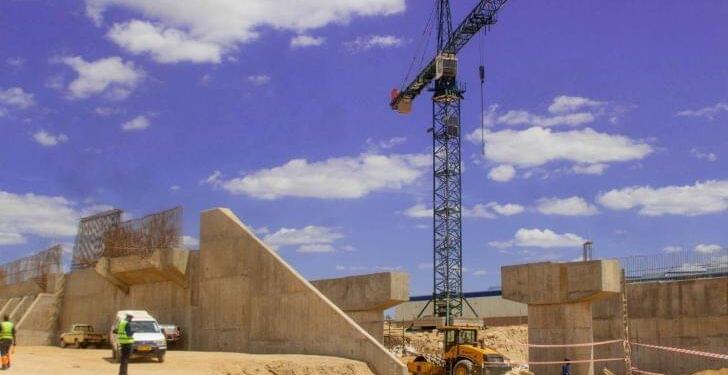Several directors at the Ministry of Transport have been quizzed by anti-graft investigators after whistle blowers leaked explosive details linking them to the pillage of a fund meant to compensate owners of companies and houses affected by the Mbudzi Interchange project in Harare, the Zimbabwe Independent can exclusively reveal.
More bosses from the ministry were expected to be grilled by Zimbabwe Anti-Corruption Commission (Zacc) officials in the coming weeks in a probe that could further expose serious governance deficiencies in government after looters forced Treasury to halt payments to contractors last year.
The probe is likely to net bigwigs in the Ministry of Local Government and Public Works along with bosses at two of Zimbabwe’s leading real estate agencies, which made valuations of the affected properties, sources disclosed.
The Independent could not establish the extent of the fraud, which sources claimed involved manipulating figures to inflate the value of properties, which would end with property owners and corrupt officials sharing hefty looted funds.
However, it was estimated last year that up to US$35 million would be paid out to about 130 affected companies and residential properties to help them to relocate and restart elsewhere.
Some officials claimed that of this figure, US$12 million could have been paid out to 52 affected individuals and businesses by the end of 2023.
The Independent could not establish if the figures were correct.
By last night, Transport and Infrastructural Development Minister, Felix Mhona had not responded to questions sent to his office on Tuesday.
The US$88 million interchange, which lies at the heart of southern Africa’s busiest transportation corridors, was a crucial part of President Emmerson Mnangagwa’s Emergency Road Rehabilitation Programme (ERRP), which was meant to give a complete makeover to crumbling roads and bridges countrywide.
Thandiwe Mlobane, spokesperson at Zacc, confirmed that the probe was underway, but she was not at liberty to disclose full details.
“The investigations are still in their early stages. Commenting now may be prejudicial to the investigations,” Mlobane told the Independent.
However, authoritative sources said reports of pillage exploded through anonymous letters during top level power struggles in the Ministry of Transport.
“Zacc summoned some directors amid allegations that some owners of properties at the Mbudzi Interchange had their properties overvalued,” one of the sources said.
“The memorandum (containing overvalued properties) was reportedly signed by (a senior official in the ministry whose name was given to the Independent).”
This week, the official, who has been reassigned to another ministry, denied the allegations.
“Zacc is in the process of conducting interviews with different officials from the Ministry of Transport. Some officials based at Compensation House have also been interviewed. It is a hot topic within government,” the source added.
The Mbudzi Interchange project is being executed by a joint venture called Tefoma, after the Zimbabwe Stock Exchange-listed Masimba Holdings combined efforts with two other domestic construction firms – Fossil and Tensor — to pool resources and skills and build the mega facility.
The consortium clinched the deal in 2021, and the US$88 million project will be funded through a vendor financing model, with a loan from Fossil already gazetted.
Initially, contractors had planned to complete the project by early next year, but are now behind schedule.
When complete, the interchange will have 13 bridges and 15 kilometres of interchange and service outlets.
In August 2022, the government directed all ministries, departments and agencies (MDAs) to suspended payments to service providers as part of efforts to halt a slump in the local currency which was fuelling hyperinflation.
Finance and Economic Development permanent secretary George Guvamatanga issued the directive after the Treasury had noticed that some of the contractors were submitting invoices of cash for goods and services using parallel market rates.
The MDAs were required to seek approval from Treasury for current and future contract pricing and share with it their due diligence on existing charges.
During the same period, the then Presidential Affairs and Monitoring Implementation of Government Programmes minister Jorum Gumbo said contractors were facing delays in payments as a result of the due diligence, which the government was now carrying out after some of them were found to be inflating prices.
However, the directive threatened many of the service providers, who ran into cash flow problems.
In September, the Independent revealed that contractors undertaking the massive public infrastructure revamp countrywide had threatened to pull out after accumulating an estimated ‘US$150 million’ in unpaid invoices.
Authorities rolled out the huge programme to completely makeover or rehabilitate the country’s deteriorating infrastructure after President Emmerson Mnangagwa assumed power in 2017.
The ERRP, which saw government completely resurface the 582 kilometre Harare – Masvingo – Beitbridge highway, was among flagships of the poorly funded but vital programme.
Source – the standard









